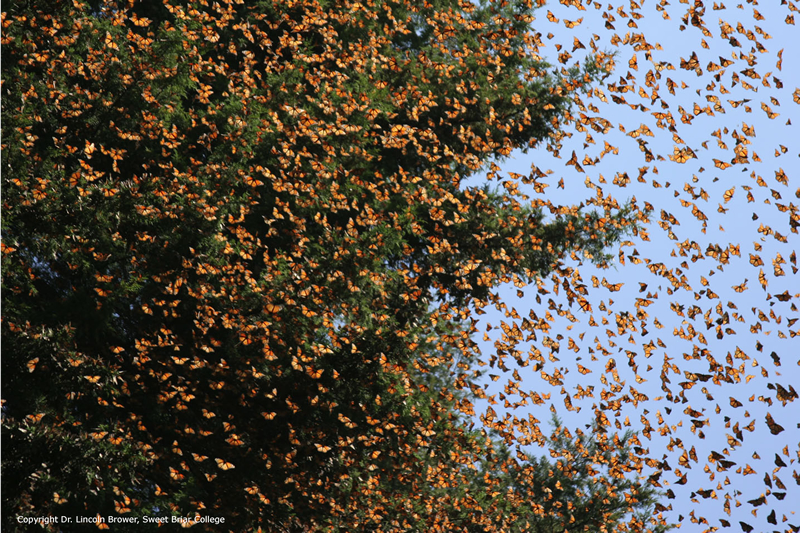The number of monarch butterflies wintering in Mexican forests declined for a second consecutive year, a government official said Monday March 5.
Alejandro Del Mazo, Mexico’s commissioner for protected areas, said the monarchs clumped in trees covering about 6.12 acres (2.48 hectares) this winter. That was down about 14.7 percent from the 7.19 acres (2.91 hectares) the previous winter.
The monarch butterflies’ migration is measured by the area they cover in pine and fir forests west of Mexico City. Millions of the butterflies make the 3,400-mile (5,500-kilometer) migration from the United States and Canada each year.
Jorge Rickards, director of the World Wildlife Fund in Mexico, which participated in the annual study, said a particularly busy hurricane season across the insects’ migration route could have been a factor.
“These climate phenomena without a doubt have an impact on the migration,” Rickards said.
He also mentioned a March 2016 wind storm and cold snap that devastated the core of the butterfly reserve.
Monarch expert Lincoln Brower, a biology professor at Sweet Briar College in Virginia who co-authored a report about the 2016 storm, pointed to the effects of that storm’s felling of thousands of trees. The salvage logging permitted by the government to remove the downed trees to reduce the risk of forest fires continued to damage the fragile ecosystem, he said.
In a September 2017 article in American Entomologist, Brower wrote that “forest thinning reduces the microclimatic buffering provided by the forest canopy during the winter season, thus increasing the mortality risk to the overwintering monarchs.”
The monarch butterflies wintering in Mexico have been in decline since the winter of 1996-1997 when they covered about 44 acres (18 hectares) of forest. There have been several rebound years, but each has generally been less than the preceding upswing.
Increased use of herbicides in the United States have hurt the prevalence of milkweed, which monarch caterpillars feed on, risking their survival.
Click here for full article on The News MX




